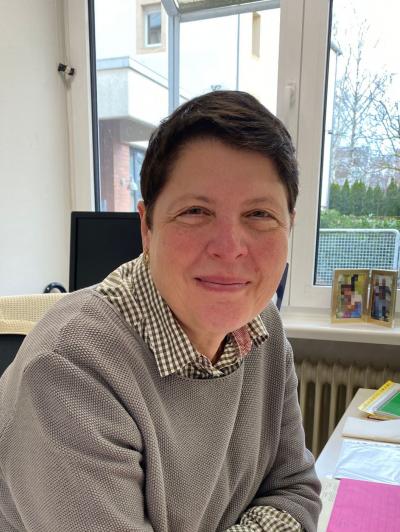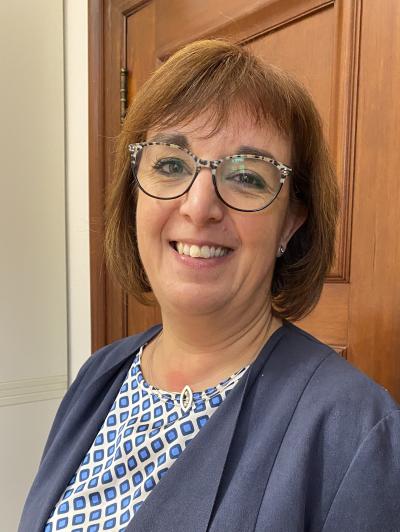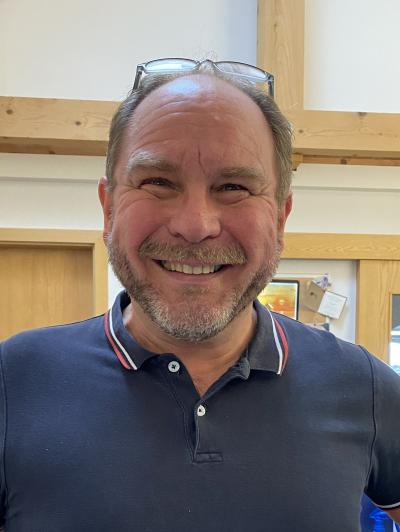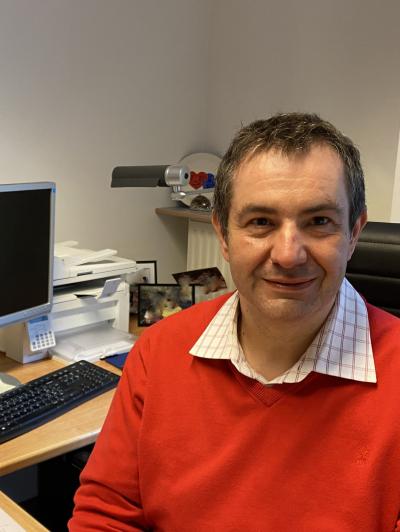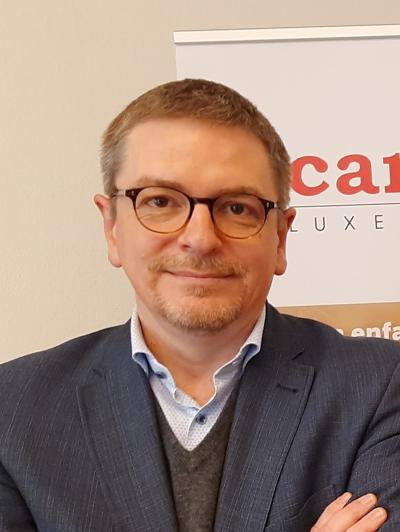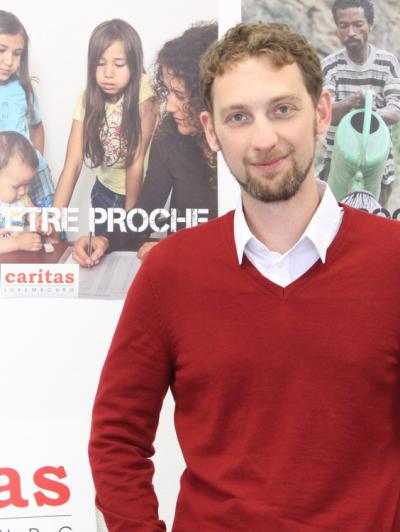
Laurence Lorang - "Even better than I expected"
Wednesday 17 March 2021
Laurence Lorang has been working for Caritas Accueil & Solidarité for almost 30 years as a social worker, in direct contact with homeless people. A job that she enjoys even more today than on her first day.
HOW DID YOU BECOME A SOCIAL WORKER?
It was my mother, who was also a social worker, who made me want to do this job. I saw how she worked, the passion she put into it and I liked that. Later on, I used to accompany her during my school holidays to activities for the clients she looked after. In my last year of high school, it was clear to me that I was going to choose this profession.
HOW DID YOU END UP WORKING WITH HOMELESS PEOPLE?
It was by chance. I had to do a one-year internship at the end of my studies and I had the opportunity to do it at Centre Ulysse. Six months before the end of my internship, a position became vacant. No one was interested in the position. It has to be said that at that time social workers were not rushing to work at Centre Ulysse. So the job remained vacant for many months as if it was just waiting for me. So when I graduated, I applied. Working with homeless people had become a matter of course for me in the meantime. I never wanted to work with children, for example. It has always been important for me to work with people who are adults and can make their own decisions. I have never regretted my choice. On the contrary, thirty years later, I think it was even better than I had imagined at the beginning. You know, our "clientele", the marginalised people on the street, are extremely grateful for the help you give them. I have been accompanying some people for decades, in their difficulties, but also when they get better. Most of them have no contact with their families and only us in their lives to listen to them and ask for advice. We have become like family members for many of them and stay in touch even when they get better.
WHAT QUALITIES DO YOU NEED TO HAVE TO WORK IN THIS FIELD?
You have to have a respectful relationship with marginalised people and be able to maintain a professional attitude. I always say that you have to be close, but not a friend. You must not do the things in place of the person. On the contrary, you have to encourage them to act themselves.
ARE THERE ANY MOMENTS THAT PARTICULARLY STAND OUT FOR YOU, BOTH POSITIVELY AND NEGATIVELY?
On the positive side, I often visit clients in hospital. As they usually have no other social contact, they are very happy and I can see the joy in their eyes.
What is more difficult, however, is to accompany people at the end of their lives. It is important to be there for them until the end, especially if they have no contact with their family.
TODAY, YOU WORK IN THE "HOUSING" DEPARTMENT OF CARITAS ACCUEIL & SOLIDARITÉ AS DEPUTY MANAGER. WHAT IS THE MISSION OF THE DEPARTMENT?
We welcome people from the Centre Ulysse emergency shelter into our accommodation as a matter of priority. We work according to the "Housing First" principles, i.e. housing is a prerequisite for the social integration of homeless people. The service has individual housing throughout the country, as well as community housing, such as the Centre de l'Oseraie in Kopstal.
When they come to us, we first let them settle in and give them a well-deserved rest. Then, with our help, they define the individual project that will gradually enable them to reintegrate into society as they wish.
Following the methodology of the person-centred approach, we help them to realise their project, according to their rhythm, their skills and their wishes, while ensuring that they acquire as much autonomy as possible. We avoid doing things instead of them. What we do, however, is to mobilise the actors in the social network who can help them with the various aspects of their project. The progress of the project is regularly evaluated with the case manager who follows the person and if necessary, the project is readjusted. Here at the "Housing" department, there are no time constraints. The important thing is that the person progresses at their own rhythm.
IF YOU COULD EXPRESS ONE WISH, WHAT WOULD IT BE?
Of course, it would be that everyone should be able to have an individual home. We have a lot of ideas in the housing department that we hope to see realised very soon. In addition, as deputy manager, I am now trying to pass on the know-how I have acquired over the last 30 years to the young people who are joining us. I hope that more and more young people will choose this profession and especially decide to work with the most marginalised people in our society.
Linked news
Donate
Your donation is essential to ensure the continuity of Caritas Luxembourg's actions in the service of the poor.
Other donation methods
